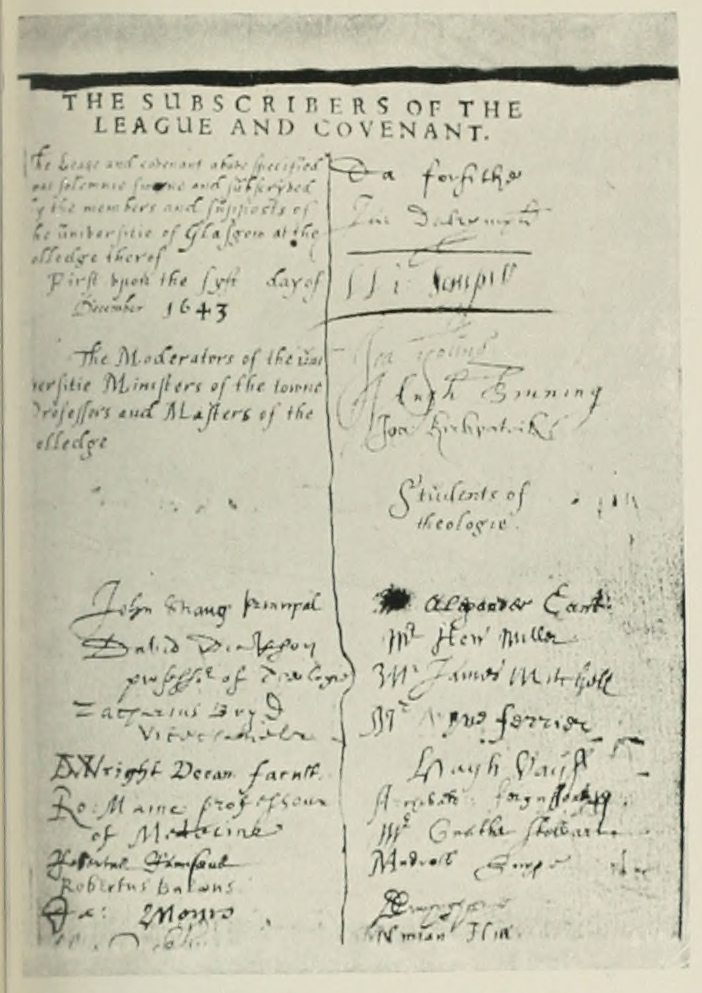|
John Strang
John Strang (1584–1654) was a Scottish minister and Principal of Glasgow University. He was a signator to the National Covenant of 1638. Life He was born at Irvine, Ayrshire in 1584. His father, William Strang (1547–1588), minister of Irvine, belonged to the family of Strang of Balcaskie in Fife; and his mother Agnes was sister of Alexander Borthwick, 'portioner' of Nether Lenagher, Midlothian. On William's death in 1588, his mother married Rev Robert Wilkie (d. 1601), minister of Kilmarnock, and young Strang received his early education at the grammar school there, Zachary Boyd being one of his schoolfellows. About the age of twelve he was sent to the University of St. Andrews, and placed under the care of Principal Robert Wilkie, a relative of his stepfather. He graduated M.A. four years afterwards, and subsequently became one of the regents of St. Leonard's College. He was licensed to preach as a Church of Scotland minister by the Presbytery of St Andrews and in April ... [...More Info...] [...Related Items...] OR: [Wikipedia] [Google] [Baidu] |
Covenanters01hewi Orig 0413
Covenanters ( gd, Cùmhnantaich) were members of a 17th-century Scottish religious and political movement, who supported a Presbyterian Church of Scotland, and the primacy of its leaders in religious affairs. The name is derived from '' Covenant'', a biblical term for a bond or agreement with God. The origins of the movement lay in disputes with James VI, and his son Charles I over church structure and doctrine. In 1638, thousands of Scots signed the National Covenant, pledging to resist changes imposed by Charles on the kirk; following victory in the 1639 and 1640 Bishops' Wars, the Covenanters took control of Scotland and the 1643 Solemn League and Covenant brought them into the First English Civil War on the side of Parliament. Following his defeat in May 1646 Charles I surrendered to the Scots Covenanters, rather than Parliament. By doing so, he hoped to exploit divisions between Presbyterians, and English Independents. As a result, the Scots supported Charles in the ... [...More Info...] [...Related Items...] OR: [Wikipedia] [Google] [Baidu] |
